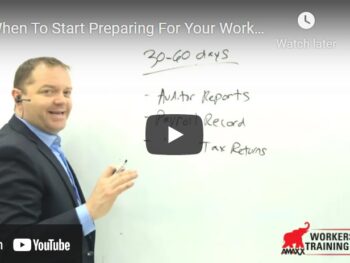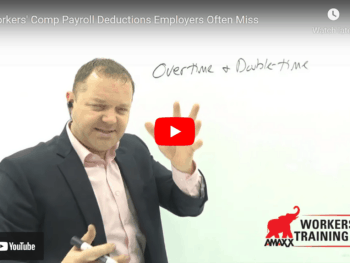What was the Question?
Was the Employer Responsible for Paying Workers’ Comp for Chivalrous Act at a Vending Machine
Here’s what happened
A 21-year-old worker (“Dwyer”), who had a preexisting hip condition associated with a baseball injury, suffered a displaced fracture through the right femoral neck when he attempted to dislodge a bag of Fritos stuck in a vending machine on the employer’s premises. A coworker had put money into the machine and made her choice, but the bag of chips got stuck and would not fall. When the coworker asked Dwyer for assistance, Dwyer first tried to tilt the vending machine and when that was not successful, Dwyer then took a step away from the side of the vending machine and attempted to hit or nudge the machine with his shoulder. He felt immediate pain in his hip and went down to the floor. Dwyer required immediate surgery and a recuperative period. He sought workers’ compensation benefits, but the employer contended the injury did not arise out of and in the course of the employment. Applying the personal comfort doctrine, which generally says that employees who, within the time and space limits of their employment, engage in acts which minister to personal comfort do not thereby leave the course of employment, unless the method chosen is so unusual and unreasonable that conduct cannot be considered an incident of the employment [see Larson’s Workers’ Compensation Law, § 21.01 et seq.], the arbitrator found a compensable accident and the Commission affirmed, with one member dissenting.
Click Link to Access Free PDF Download
“Workers’ Comp Claims Review Checklist: 9 Must-Have, Serious-Impact Elements”
Here’s how the court ruled
In Circuit City Stores, Inc. v. Illinois Workers’ Comp. Comm’n, 2009 Ill. App. LEXIS 278 (May 21, 2009), an Illinois appellate court affirmed the award of benefits, but on other grounds. Agreeing with the dissenting commissioner who had argued that the personal comfort doctrine should not apply since Dwyer was not on break nor seeking his own comfort, the appellate court found that the Commission’s finding that Dwyer’s injuries arose out of the employment was not contrary to law, at least on other theories. Tracking a line of cases in which the employment had been expanded so as to encompass an employee’s actions in aiding others in emergencies, the court here indicated that “[w]hat the instant case lacks in urgency, it makes up for in familiarity and collegiality.” There was no question that the vending machine had been provided for the benefits of employees and the public. It was reasonably foreseeable that an employee might ask a coworker for assistance to dislodge a product from the machine and that the coworker would come to the first worker’s aid. The remaining question was whether Dwyer’s manner of rendering aid crossed the line of foreseeability and accordingly took him outside the scope of his employment. The court concluded that the Commission could reasonably have found that Dwyer’s manner of assisting the other worker did not cross the line of employment. The Commission’s decision was, therefore, not against the manifest weight of the evidence.
See generally Larson’s Workers’ Compensation Law §§ 21.01, 27.01.
Author: Tom Robinson, J.D.
Tom Robinson, J.D. is the primary upkeep writer for Larson’s Workers’ Compensation Law (LexisNexis) and Larson’s Workers’ Compensation, Desk Edition (LexisNexis). He is a contributing writer for California Compensation Cases (LexisNexis) and Benefits Review Board – Longshore Reporter(LexisNexis), and is a contributing author to New York Workers’ Compensation Handbook(LexisNexis). Attorney Robinson is an authority in the area of workers’ compensation and we are happy to have him as a Guest Contributor to Workers’ Comp Kit Blog. Tom can be reached at: compwriter@gmail.com.
http://law.lexisnexis.com/practiceareas/Workers-Compensation
Follow us on Twitter: www.Twitter.com/WorkersCompKit.com
WC Calculator: www.ReduceYourWorkersComp.com/calculator.php
TD Calculator: www.ReduceYourWorkersComp.com/transitional-duty-cost-calculator.php
WC 101: www.ReduceYourWorkersComp.com/workers_comp.php
Do not use this information without independent verification. All state laws are different. Consult with your corporate legal counsel before implementing any cost containment programs.
©2008 Amaxx Risk Solutions, Inc. All rights reserved under International Copyright Law.

























